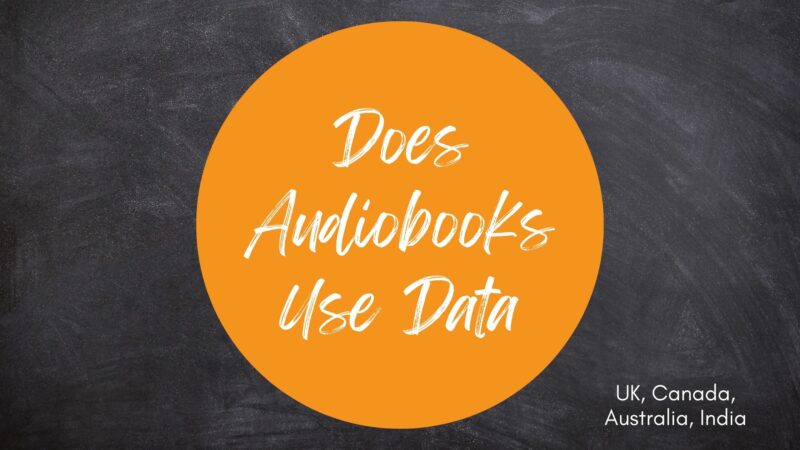30+ Jobs & Top Degrees in Demand for the Future 2023

This is probably the most comprehensive and unique list of Top Degrees in Demand for the Future that you’re gonna find on the internet.
Also, check
All these Top Degrees in Demand for the Future can earn you over a hundred thousand dollars. Have really good job prospects and most importantly they give you the freedom to choose from a bunch of different career paths.
And I have choices for everybody whether you’re interested in science, engineering, business, or even health care.
Let me know your thoughts on these degrees which do you like. Do you plan to choose any of them or are you ready ahead of the game and had one of these in mind? Whatever it is let me know your thoughts in the comments.
30+ Jobs & Top Degrees in Demand for the Future 2022
You’re in college and you have no idea what major to choose. Well, what you need is a degree that keeps your options open and will be relevant for years into the future. Here are some of the best college majors.
Job | Degree | Growth Rate |
Actuaries | Degree in mathematics, business | 24% |
Data Scientist | Degree in data Analytics | 31% |
Film Editor | Degree in fine arts | 29% |
Financial Managers | Degree in Accounting | 17% |
Financial Examiners | Degree in business, economics | 18% |
Market Research Analysts | Degree in market research | 22% |
Information Security Analysts | Degree in computer and information technology | 33% |
Interpreters and Translators | Degree in Language | 24% |
Logisticians | Degree in logistics and supply chain management | 30% |
Medical and Health Services Managers | Degree in health administration | 32% |
Event Planners | Degree in communications, and social science | 18% |
Museum Worker | Degree in history, or social science | 19% |
Operations Research Analysts | Degree in engineering, or computer science | 22% |
Software Developers | Degree in computer and information technology | 22% |
Clinical Laboratory Technologists | Degree in medical technology | 11% |
Social Worker | Degree in social work | 12% |
Construction Manager | Degree in construction, business | 11% |
Computer and Information Systems Managers | Degree in Computer and Information Systems | 11% |
Dietitians and Nutritionists | Degree in food and nutrition, | 11% |
Community Health Workers | Degree in health education | 17% |
Industrial Engineers | Degree in industrial engineering | 14% |
Public Relations | Degree in public relations, communications | 13% |
Technical Writers | Degree in English, Communication | 12% |
Web Developers and Digital Designers | Degree in computer science or programming | 13% |
Degree in Business
A business degree is one of the most popular and versatile degrees you can get. After all, a business degree can lead to careers in a wide range of industries, from accounting and finance to marketing and management.
And while a business degree may open the door to many different career paths, there are a few skills that all business graduates should have. Here are five essential skills you’ll need to succeed in any business career.
1. Communication
2. Critical thinking
3. Creativity
4. Interpersonal skills
5. Organizational skills
A business degree can give you the practical skills you need to start and grow a successful business. You’ll learn about financial management, marketing, human resources, and other essential business functions. And you’ll have the opportunity to put what you’ve learned into practice through internships and other hands-on experiences.
Whether you’re interested in starting your own business or working for a large corporation, a business degree can give you the foundation you need to succeed.
Degree in Computer Science
Computer science is the study of computers and computational systems. In computer science, you will learn about the design and implementation of algorithms, data structures, and software systems. You will also develop an understanding of the principles of computer hardware and architecture.
A degree in computer science will prepare you for a career in the IT industry, as well as other industries that require strong analytical and problem-solving skills.
Degree in Information Technology
Information technology (IT) is the use of computers to store, retrieve, transmit, and manipulate data, or information, often in the context of a business or other enterprise. Information technology is considered a subset of information and communications technology (ICT).
An IT degree can lead to a career in a number of different fields, including computer science, systems analysis, information security, and software engineering. With an IT degree, you’ll have the skills and knowledge to work in a variety of industries, including healthcare, government, education, and business.
Degree in Health Science
A degree in health science can lead to a wide variety of rewarding and challenging careers. Health science is a broad field that covers everything from the study of disease to the promotion of healthy lifestyles. With a degree in health science, you could work in a hospital, a research lab, a government agency, or even start your own health-related business.
There are many different types of health science degrees, so you can choose the one that best fits your interests and career goals. And with the ever-changing health care landscape, a degree in health science can give you the flexibility to adapt to the demands of the job market.
Degree in Fine Art
A degree in fine art is a great way to pursue a career in the arts. With a degree in fine art, you’ll be able to pursue a wide range of careers in the arts, from graphic design and advertising to illustration and photography.
You’ll also be able to find work in the entertainment industry, working on films, television shows, and video games.
Geoscience
Average salary: $94,000
It’s definitely not that well known and the only reason I know about it is that one of my friends has a degree in geoscience and he absolutely loves his job.
Like with a lot of other majors out there you’re gonna have to take classes like biology, chemistry, physics, math, and engineering. But as a geoscience major, you’ll apply all that towards learning about the earth. Its natural resources. What rocks are made out of? And even what affects the climate.
The reason geoscience ranks on this list of Top Degrees in Demand for the Future are because as governments and companies think more about the environment, the demand for geoscientists is growing way faster than a lot of other jobs.
And you have a ton of different career options to choose from. You could work for the federal government helping make environmental policy decisions. The state government to help manage natural resources and forests or even large companies where you would be an environmental engineer.
One day, you could be out in the field collecting rock samples. The next would be creating a forecasting model and then next be writing a scientific report that you present the variety and the types of work and issues you face.
This all makes geoscience one of the most fulfilling careers out there. Plus the pay is pretty good with the average geoscientist earning over $94,000 staying on the topic of natural resources and energy.
Nuclear Engineering
In nuclear engineering, you learn all about nuclear energy. How it’s created and how you can use it.
For most people going into engineering, this wouldn’t be your first choice. But the fact is that nuclear energy and radiation can be used for so much leaving you with a behemoth of career choices to choose from.
Nuclear energy is one of the cleanest sources of energy. So of course you can work for the government or energy companies but you could also branch out and go into the medical field where you help develop new radiology devices or techniques for radiologists to follow.
At the end of the day if you’re really into science and imagine yourself being like dexter’s laboratory that nuclear engineering might be the perfect degree for you. And you’ll also make a decent bag with an average salary of $116,000.
Accounting
Accounting is one of the safest business majors that you can get because you’re basically guaranteed a job.
You can choose from multiple career paths and if one doesn’t work out you can easily pivot one of the most common paths is working for a big accounting firm. And at those places, you can earn over $85,000 right out of college. And well into six figures by your mid or late twenties.
Or you could become a financial analyst. Go into investment banking or even consulting really whatever business field you want the world is your oyster.
Now I will admit that accounting is probably one of the most boring degrees out there. You’re basically staring at numbers and spreadsheets all day. So it’s not for everybody.
Economics
Average Salary: $108,000
Economics majors have a really versatile background in learning all about the markets and government policy.
But beyond that economics can help you build a super strong set of skills from problem-solving to analytics. And that will make you valuable to essentially every industry and a company you can choose from a similar scope of jobs as a finance or accounting major and then some.
Economics isn’t just great to get your foot into the business world. But also makes a great pre-law degree.
Of course, your income is gonna depend on what route you take.
If you go finance, your income is going to be different than someone who chose a government policy type role. But with all of these options, it’s no surprise that demand for people with an economics degree is growing insanely fast at 13.
For context the average job growth across all jobs is just 3 percent and the average economist does really well for themselves with a salary of $108,000.
Physics
One of the most versatile stem degrees is in physics.
This is a perfect degree for those of you who are interested in science but don’t exactly know what career path to choose.
Normally I don’t recommend a hard science major like biology and chemistry. Because they really limit your options. But physics does just the opposite.
That’s because with physics you don’t just learn science but you actually learn how to apply that science to real-life scenarios. In this, you solve complex problems using creativity. That background means you can pave your own career path based on your interests.
You could go into research and development, engineering, tech, and even some business-related roles like a business analyst or consulting.
And the pay is really high almost three times the average American household income at $129,000.
Data Analytics
Brings me to a degree that is just as great but involves way less science data analytics. The perfect mix of business and tech.
Now if you have already read that article, you already know this but data is the number one most valuable asset of the 21st century. And if you’re able to understand it and use it, your skills can land you essentially any job that you want.
I mean think about it.
The most successful corporations are essentially data collection companies who use our data to then make money off of us.
Facebook or should I say Meta who tracks every single click that we make on our computers to send the super-targeted ads that make them billions.
TikTok collects data on our behavior as we’re using their app. So they can feed us an endless amount of videos that we can’t stop watching. And end up spending more time on their app.
The fact is that every single company in every industry uses data. And they need full teams of smart people to help them out with that.
Of course tech companies have a ton of data science rules and even small businesses use data to help them grow.
So if you have literally no idea what industry you want to work in but you know you like solving problems and helping make decisions. Then data analytics is a perfect major to choose.
If I had to go back to school and choose a major all over again data analytics would be my number one choice.
Not only is this one of the best growing careers at a whopping 31 but a lot of these jobs are remote and pay extremely well. You can make upwards of $80,000 to $100,000 right out of college.
An experienced data scientist can earn well over $200,000.
Healthcare Informatics
Average salary: $104,000
You learn all about using healthcare data and analytics to make better systems and healthcare policy decisions.
With a degree in health informatics, you can get essentially any operational role in a hospital’s work. You can work for a company that makes software for hospitals or go into healthcare consulting.
Healthcare informatics opens up so many options in the industry. But it doesn’t lock you into one specific career path which also makes it a really good pre-med degree.
Traditional pre-med degrees like bio or neuroscience are horrible choices because they really limit your options. If med school or grad school doesn’t work out then you’re pretty much stuck.
But by choosing healthcare informatics you can gain a really strong background that helps you stand out in your med school application. But also if the med school doesn’t work out then you can still get a really high-paying job in the healthcare industry.
Now the best part by far is that demand for people in operational healthcare roles is growing ridiculously fast at an average of 32%. And you’re also paid extremely well with an average salary of $104,000.
Computer Science
Now this list of Top Degrees in Demand for the Future wouldn’t be complete if I didn’t include computer science with tech companies booming over the past decade.
This has been one of the most highly sought-after degrees. And will only continue to be. So it’s completely mind-boggling how much money you can earn with a computer science degree.
It also offers some of the best work-life balance. A lot of people think computer science is a really narrow degree that can only get you software engineering jobs. But that couldn’t be further from the truth.
Of course, you could earn six figures working at a FANG right out of college. But you could also work for the government and cyber security which is actually one of the fastest-growing fields out there.
The possibilities are endless. As a college student, knowing what you want to do for the rest of your life is impossible. This is why you should choose a degree that didn’t lock you into one career path that you might regret. And I made sure all the degrees on this list of Top Degrees in Demand for the Future do the exact same.






